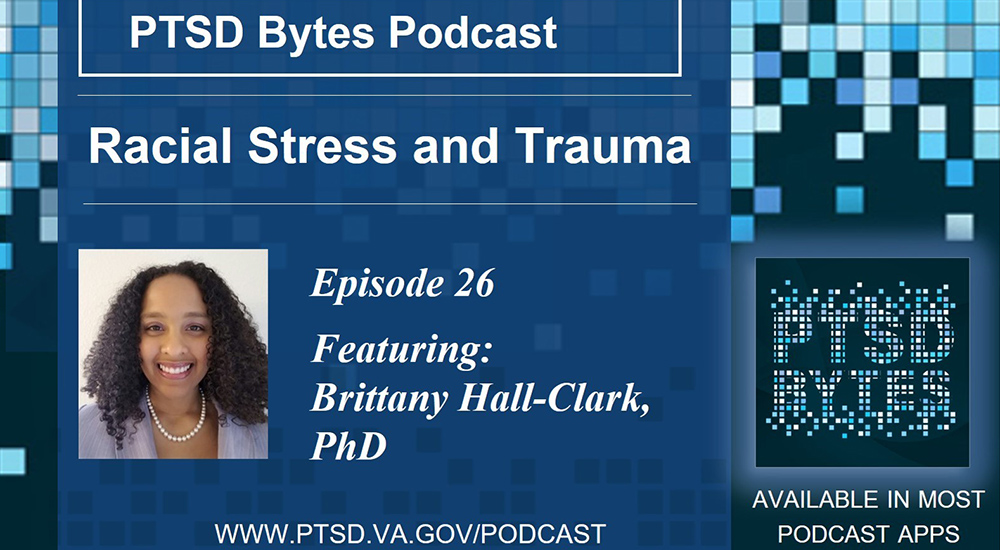In this episode of the PTSD Bytes podcast, host Dr. Colleen Becket-Davenport talks about racial stress and trauma with clinical psychologist Dr. Brittany Hall-Clark from the VA PTSD Consultation Program.
Racial stress and trauma
Racism is when people are treated badly or unfairly because of their race. Racism can be expressed in obvious actions, insensitive comments or other microaggressions. Racism can also be structural. For example, when policies lead to unequal opportunities for different groups.
Racial stress includes a range of reactions that can result from experiencing racism. In some cases, racism can lead to trauma symptoms, such as avoidance, feeling on guard or having negative thoughts and feelings. Unlike traumatic events that happened in the past, racial trauma is often ongoing in the present.
Veteran Jeffrey Jones describes what racial trauma means to him.
Recognizing the impact of racial stress and trauma
Racial stress and trauma are not yet formally recognized as diagnoses. However, mental health providers are becoming increasingly aware of and trained to deal with these experiences. And there have been growing efforts to develop treatments. If you are affected by racial stress but your provider doesn’t ask you about it, you can let them know that this is an important concern for you.
Treatment for racial stress and trauma
If you’re a Veteran interested in treatment for racial stress and trauma, contact your local VA to find out if it offers Race-Based Stress and Trauma Empowerment groups. If you’re receiving treatment for PTSD and racism is also affecting you, talk to your provider about adding healing from racial trauma into your care.
Other ways of coping
In addition to treatment, there are ways to cope with the effects of racial stress and trauma on your own. Self-care can include giving yourself permission to rest, taking a break from negative media and connecting with people who help you feel safe. You might also want to take empowering action like bringing attention to racism when you see it or getting involved with social justice and advocacy efforts.
There are several technology-based resources available:
- Learn more about racial trauma on the National Center for PTSD website
- Watch videos by Veterans who share their experiences of race, culture and PTSD on the AboutFace website
- Use trauma coping tools in the PTSD Coach mobile app
Additional Links:
- Take a self-assessment for racial stress and trauma online
- Check out the C.A.R.E. Package for Racial Healing for tools to help Black youth cope with racism
- More PTSD Bytes episodes
If you are a Veteran who is experiencing a crisis or supporting a loved one who is, dial 988 and press 1 for immediate assistance, or chat online at VeteransCrisisLine.net/chat.
Topics in this story
Link Disclaimer
This page includes links to other websites outside our control and jurisdiction. VA is not responsible for the privacy practices or the content of non-VA Web sites. We encourage you to review the privacy policy or terms and conditions of those sites to fully understand what information is collected and how it is used.
More Stories
Columbia VA’s robotic surgery teams completed their 800th robotic surgery and are on schedule to hit 1,000 by the end of the year.
In a decentralized clinical trial, Veterans can participate from their own homes or local VA instead of having to travel to a research site.
After serving in the Air Force for 25 years, Larry Wilson is now a My HealtheVet coordinator helping Veterans navigate their care.






